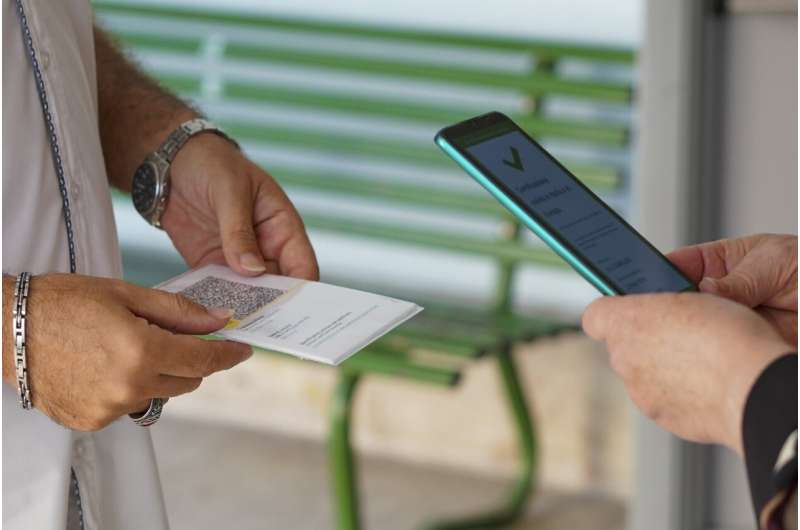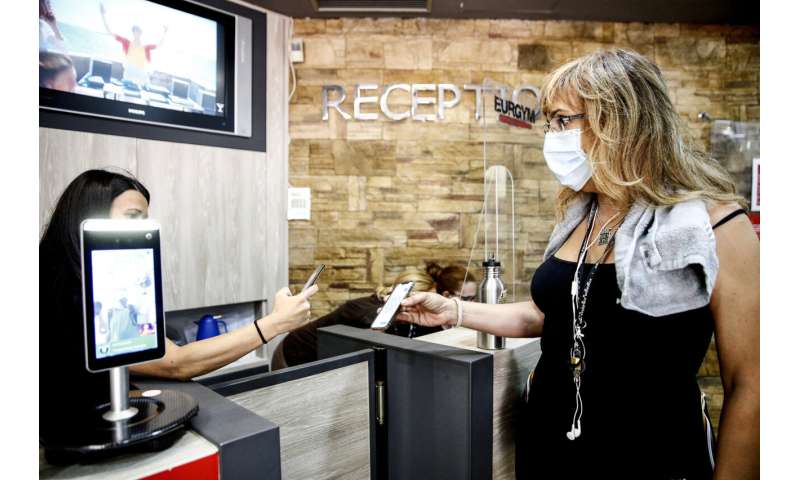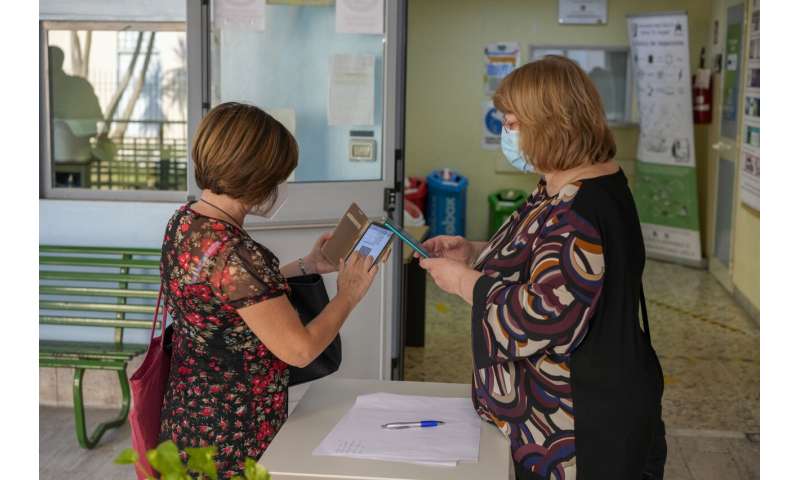Italy requires COVID-19 pass for all workers from Oct. 15

Italian workers in both the public and private sectors must display a health pass to access their workplaces from Oct. 15 under a decree adopted Thursday by Premier Mario Draghi’s broad-based coalition government.
The measures are the first by a major European economy requiring proof of vaccination, a recent negative virus test or recovery from COVID in the previous six months for all categories of workers.
“The Green Pass is an instrument of freedom, that will help us make workplaces safer,” Health Minister Roberto Speranza told a press conference. “The second reason is to reinforce our vaccine campaign.”
Slovenia and Greece adopted similar measures this week. But Italy’s 2-trillion-euro ($2.35 trillion) economy, the third largest in the European Union, is a far larger target, and the measure underscores the government’s determination to avoid another lockdown even as the numbers of new virus infections creeps up, mostly among the unvaccinated.
Ministers said the measures were aimed at reinforcing Italy’s economic recovery, with GDP forecast to grow 6% this year, at a critical moment in the pandemic as schools reopen and cooler fall weather moves more activities indoors, where the virus spreads more easily. They also expressed concern about the impact of any possible new variants.
Workers face fines up to 1,500 euros ($1,765) and employers up to 1,000 euros if they do not comply. Public sector employees risk suspension if they rack up five absences for failure to show up with a Green Pass; private sector workers can be suspended after the first failure. The measures remain in effect as long as Italy is in a state of emergency, currently until Dec. 31.

Labor Minister Andrea Orlando said that no one risked being fired if they didn’t present a Green Pass, and the public administration minister, Renato Brunetta, acknowledged that checks in some workplaces would have to be random.
“It is very likely that the effect of the announcement will already bring in the next four weeks an acceleration in Green Passes, yes, but also of vaccinations,” Brunetta said. “The result could already be achieved, or partially achieved, or perhaps—optimistically—exceeded, before the decree even takes effect.”
Unions and right-wing parties lobbied unsuccessfully for COVID tests to be provided free of charge to workers. The price will be set at 15 euros for adults, and 8 euros for anyone under 18.
Italy surpassed the threshold of 80% of the eligible population having received at least one dose of the vaccine this month, with more than 81.7 million vaccine doses administered through Thursday. Three-quarters of the population, or 40.5 million people, are fully vaccinated.
While the Green Pass was supported by parties across the political spectrum, critics have signaled concerns about a gradual and ongoing erosion of civil liberties during the pandemic. Court challenges are likely, as the right to work is enshrined in Italy’s constitution.
Legal expert Vitalba Azzollini, a fellow at the Bruno Leoni Institute think tank, said the measures lack the necessary transparency to evaluate if they are proportionate to the situation, without specific goals for adequate vaccination coverage, or guidelines on exactly how often the Green Passes need to be checked.

In addition, she noted, such decrees are supposed to be for emergency situations but this one had been approved a full month before implementation.
“The Green Pass is not a nudge to get vaccinated, it is a not-so-gentle push,″ she said.
Italy was the first country in the West to be hit by local transmission of the virus in February 2020, and the government took the extraordinary measure of closing all non-essential manufacturing for seven weeks as part of a draconian lockdown.
The Green Pass requirement covers 14.7 million private sector workers and 3.2 million in state-supported jobs.
Until now, only medical personnel have been obliged to be vaccinated, while the Green Pass mandate was in place only for school employees. Green Passes also are necessary for indoor leisure activities, such as dining, theater-going or museum visits, and for long-distance domestic travel.
Source: Read Full Article


